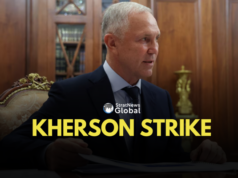Shadow play or prelude to a wider war? After launching an estimated 200 drones (if not more) and missiles at Israel on early Sunday morning, Iran’s permanent mission to the United Nations posted the following message on X at 3:36 am on Sunday: “Conducted on the strength of Article 51 of the UN Charter pertaining to legitimate defense Iran’s military action was in response to the Zionist regime’s aggression against our diplomatic premises in Damascus. The matter can be deemed concluded. However, should the Israeli regime make another mistake, Iran’s response will be considerably more severe. It is a conflict between Iran and the rogue Israeli regime, from which the U.S. MUST STAY AWAY!
West Asia scholar Talmiz Ahmad believes that the statement suggests that “Tehran wants to take this matter thus far and no further.” Ahmad who was India’s ambassador in Saudi Arabia, and who closely follows developments in the region, says, “The firing of missiles by Iran was symbolic and a demonstration to Israel, the US, and the region of its strategic capability. It should be noted that the missiles took several hours to reach Israel ensuring that they were easily shot down by the US and Israel and it should also be noted that the Iranians took 14 days (after the Israeli attack on its consulate) to retaliate.”
Ahmad also points to Israel’s response, which was to demand an emergency meeting of the UN Security Council rather than a military riposte. In Washington DC, President Biden “condemned” Iran’s attacks and reaffirmed his country’s “ironclad” backing for the Jewish state. But the US response remained entirely in the diplomatic domain: “Tomorrow, I will convene my G7 leaders to coordinate a united diplomatic response to Iran’s brazen attack. My team will engage with their counterparts across the region. And we will stay in touch with Israel’s leaders,” Biden said.
Incidentally, US Centcom chief Gen Michael Kurilla is currently in Tel Aviv and is reportedly liaising with Israel’s military to ensure cooler heads prevail.
Another big deterrent for Israel not to escalate the matter are the Gulf states. To strike Iran, Israeli missiles would have to traverse the air spaces of Syria, Iraq, and Jordan. While Syria is not unused to Israeli missiles, hackles would be needlessly raised in Iraq and Jordan, adding to Tel Aviv’s isolation in the region. Saudi Arabia, the acknowledged heavyweight among the Arab states, tread a careful line with its foreign ministry statement expressing “deep concern over the military escalation, developments in the region and its serious repercussions and urges all parties to exercise maximum restraint and to protect the region and its people from the dangers of war.”
Crucially, the statement made no reference to the Iranian attack and instead insisted upon the “Security Council to exercise its responsibility in maintaining international peace and security. The region is crucial for global peace and security.”
Ahmad believes Israeli Prime Minister Netanyahu will let matters slide as far as a direct attack on Iran is concerned. The bombing of the Iranian consulate in Damascus on April 1 was a deliberate attempt by him to escalate matters and his eye may be on Hezbollah, Iran’s proxy in Lebanon. “Israel has already struck in Syria and Iraq, and it makes no sense for them to launch another attack there. The Houthis are too far away, leaving Hezbollah a possible target that the Americans could live with. The question remains though how much leeway would he get, and what would be the nature of the attack? Would it be a short sharp air strike or a prolonged attack? Would Israel inflict mass casualties?”
Even if this is so, Ahmad does not believe Iran would intervene. “Iran has been under sanctions for over 40 years. It does not have the firepower to take on Israel directly, should this happen. We can most probably expect fiery rhetoric and nothing more,” he said adding however that much of what lay ahead depended on the Israeli prime minister. “Netanyahu has no incentive to make peace and he has shown in the past that he is willing to defy Biden. Can he be controlled is the key question?”
Traveller, bibliophile and wordsmith with a yen for international relations. A journalist and budding author of short fiction, life is a daily struggle to uncover the latest breaking story while attempting to be Hemingway in the self-same time. Focussed especially on Europe and West Asia, discussing Brexit, the Iran crisis and all matters related is a passion that endures to this day. Believes firmly that life without the written word is a life best not lived. That’s me, Ashwin Ahmad.




